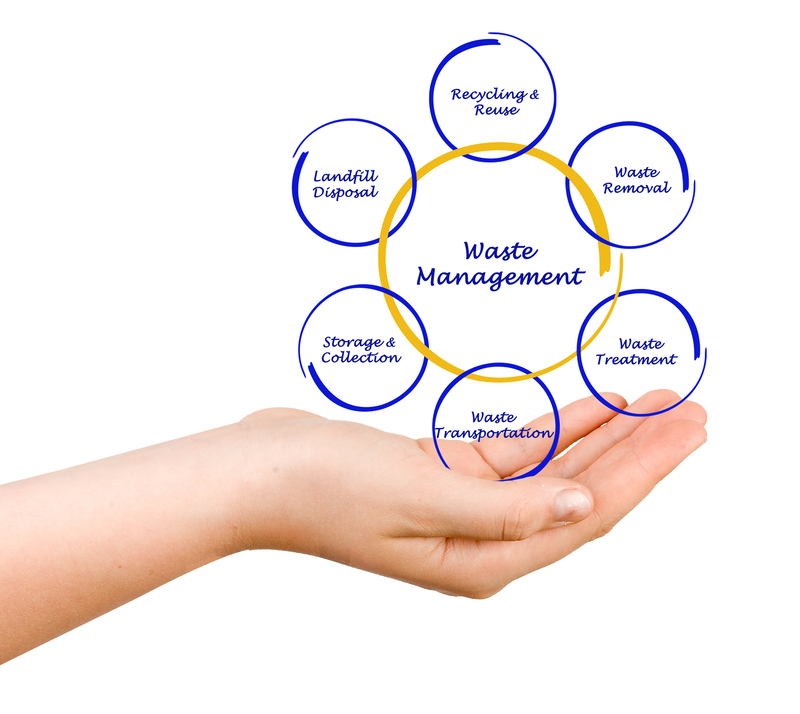Sustainable Clearing of Business Waste
Posted on 23/03/2025
Sustainable clearing of business waste is a crucial practice that involves the adoption of environmentally friendly methods for managing and disposing of waste generated by businesses. This practice not only helps in reducing the carbon footprint but also contributes to the overall health of the planet. Incorporating sustainable waste management strategies ensures long-term economic and environmental benefits by minimizing the adverse effects of waste on ecosystems.
The Importance of Sustainable Waste Management
Business waste, including paper, plastics, metals, and organic waste, can have significant environmental impacts if not managed properly. By adopting sustainable waste management practices, businesses can:
- Reduce greenhouse gas emissions
- Minimize landfills
- Conserve natural resources
- Save energy
Implementing these practices showcases corporate responsibility and can enhance a business's reputation, attracting environmentally conscious customers and stakeholders.

Effective Strategies for Sustainable Business Waste Management
Businesses can employ several strategies to manage waste sustainably:
1. Waste Reduction: The first step is reducing the amount of waste generated. This can be achieved by adopting efficient manufacturing processes, minimizing packaging, and encouraging digital communication over paper-based methods.
2. Recycling and Reusing: Recycling helps in transforming waste materials into new products, thus conserving resources and reducing energy consumption. Reusing items whenever possible reduces the need for new products and the waste associated with their manufacture.
3. Composting: Organic waste can be composted to create nutrient-rich soil amendments, reducing the need for chemical fertilizers and diverting waste from landfills.
4. Proper Hazardous Waste Disposal: Proper disposal of hazardous waste is critical to prevent contamination of soil and water resources. Businesses should comply with local regulations and ensure safe handling and disposal of such materials.
The Role of Technology in Sustainable Waste Management
Advancements in technology can significantly enhance sustainable waste management practices. For instance, smart waste management systems use sensors and data analytics to optimize collection routes, reducing fuel consumption and emissions. Additionally, innovative recycling technologies can process complex materials more efficiently, thus expanding the range of recyclable items.
Employee Engagement and Training
Engaging employees in sustainable waste management practices is vital for their success. Businesses should provide regular training sessions to educate employees about the importance of waste reduction, proper waste segregation, and recycling methods. Creating a culture of sustainability within the organization ensures long-term commitment and adherence to eco-friendly practices.
Collaborations and Partnerships
Collaborating with other businesses, government agencies, and non-profit organizations can enhance sustainable waste management efforts. Partnerships can lead to shared resources and knowledge, innovative solutions, and increased recycling rates. By working together, businesses can create a more significant impact on reducing waste and promoting sustainability.
Pros and Cons of Sustainable Clearing of Business Waste
Pros:
- Environmental Protection: Reduces pollution and conserves natural resources.
- Economic Benefits: Lowers operational costs through efficient resource use and waste reduction.
- Enhanced Reputation: Attracts environmentally conscious customers and investors.
Cons:
- Initial Costs: May require upfront investment in new technologies or systems.
- Training Requirements: Employees may need ongoing training and engagement initiatives.
- Regulatory Compliance: Keeping up with changing regulations can be challenging.
Tips for Effective Sustainable Waste Management
- Conduct regular waste audits to identify waste streams and areas for improvement.
- Set clear waste reduction and sustainability goals.
- Invest in staff training programs focused on sustainability practices.
- Partner with local recycling and composting facilities.
- Stay informed about advances in waste management technology.

Takeaways for Sustainable Clearing of Business Waste
Adopting sustainable waste management practices is essential for businesses aiming to reduce their environmental impact and improve operational efficiency. By reducing, reusing, and recycling waste, businesses can conserve natural resources, save money, and enhance their reputation. Engaging employees and maintaining partnerships are crucial for the successful implementation of these practices.
Conclusion
Sustainable clearing of business waste is not merely a trend but a necessity in today's eco-conscious world. Businesses can reap substantial economic and environmental benefits by implementing effective waste reduction, recycling, and reuse strategies. While the initial investment and ongoing training may pose challenges, the long-term advantages make it a worthwhile endeavor. Sustainable waste management is integral to protecting the environment and ensuring a healthy planet for future generations.
Latest Posts
How to Separate Trash Efficiently
Ways to Reduce Your Environmental Impact






